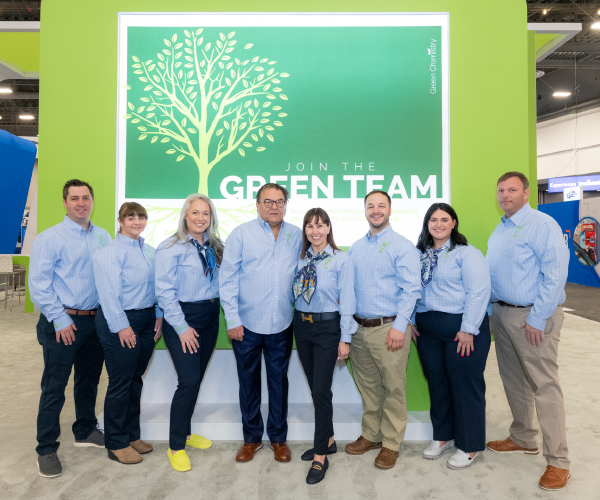
Unregulated Hand Washes a Bane for British Operators
April 1, 2013
8 minute ReadSeven o’clock in the morning might seem an odd time for happy hour. But not in Britain’s car washing industry, where car wash operators have been driven to embrace new methods to combat their unregulated hand wash competitors.
Britain’s Car Wash Association, or CWA, estimates that 20,000 unregulated car washes have sprung up within the United Kingdom within the past decade. And those within the professional side of the industry believe that influx has hurt independent operators, driving some under and leaving the industry to well-heeled powerhouses who can best cope with the upstarts. It is important to note that in the U.K., the term hand wash is often used to broadly refer to the unregulated portion of the car wash industry, whereas many credible hand wash operations exist in the U.S.
The main problem with these newcomers, as a large swath of Britain’s automated car wash industry sees it, is that they have eluded regulation by Britain’s government. The old-timers now complain that these hand washes operate illegally, with authorities doing little to force them to abide by the same environmental, tax and labor regulations as the automated outfits.
Michael Harris, managing director of WashTec UK Ltd., observed that the CWA reported as recently as 2005 that hand-washes held just a “trace volume” of the market.
By 2012, Harris said, they commanded nearly 60 percent of the commercial car washing market in Britain by volume and about 74 percent of the market by value.
An explosion of such outfits in recent years has threatened operators within the U.K. and forced them to counter with initiatives such as promotional offers, an accreditation program and assertions about the competitors’ regulatory bona fides.
Take the efforts of Fraser Group Services, for example. British motorists can find a bargain during happy hour, which depending on the month runs between 7 a.m. and 10 a.m. or from 5 p.m. to 8 p.m., at one of Fraser’s five washes.
According to Mark Wilson, operations manager for the Fraser Group, introducing happy hour was just one of several ideas the company has promoted in an effort to overcome the stiff competition posed by hand washes.
“We decided to take on the hand car wash operators with a marketing campaign and have constant offers such as Ladies Day, Pensioners Day and a Gentleman’s Afternoon,” Wilson said.
The Fraser Group, Wilson added, also sponsors a car wash club whereby customers get an e-mail each month containing a special offer that can range from a “platinum” wash for half price wash, or a giveaway such as a screen wipe or air freshener. The company also gives a free wash on the customer’s birthday.
In fighting back, IMO, operator of 900 washes across Europe, about one-third of which are in Britain, once offered a car-wash voucher partnership with The Headline Group, a sales and travel promotion company, to distinguish itself from the hand washes. IMO also offered an online deal to give 20 people free car washes for a year.
Writing at the website of The Forecourt Trader, a trade publication for the U.K.’s gasoline retailers, David Charman, former chairman of the CWA, once urged his automated members to get creative.
“Our car washes do a great job. We must continue to get new customers. Wash Clubs, Ladies’ Days, will all make your site unique. If the precipitation persists, then how about a rainy day special!” Charman wrote.
LOOKING AT THE FLIP SIDE
“Hand car washing is not a bad thing full-stop,” added Wilson, who works for one of the pioneers in Britain’s car washing industry. “Obviously the illegal ones need to be brought in line with all the regulations and compliance issues that we face. However, what the hand car wash operators have done is increased the amount of times the general public actually wash their cars.”
“They have raised the awareness of car washing in the U.K. more than ever, and while we have lost or transferred some business to hand car washing, I believe more people than ever are open to the idea of having their car washed by alternative methods — be it hand car wash or a mechanical system. What we need to do is highlight our unique selling points.”
The increased presence of the hand washes has produced a mixed outcome.
WashTec estimates that the overall market has jumped about 17 percent since 2008, Harris said. “Commercial hand washing operations have been responsible for boosting the market place,” he pointed out. “Nevertheless, the now dominance of the hand wash sector comes at the expense of the automated operators who have seen their income decline by a third since 2008.”
THE WASHMARK DISTINCTION
To help the environmentally conscious British public distinguish between the industry’s gold standard and its gold-plated rivals, the CWA launched the WashMark program in 2012.
The association, which counts high-quality hand washes among its members, bills the WashMark as the symbol identifying a wash that takes car washing seriously and that complies with Britain’s rigorous environmental laws.
“All legitimate businesses should be able to count upon trading on a level playing field. Many unregulated car wash operators flout the rules and regulations that are adhered to by responsible businesses. This gives them an unfair advantage, harms the businesses that contribute to the U.K. economy and inflicts damage upon the environment,” the CWA argued.
“If you are looking for somewhere that is safe to wash your car,” the CWA pitched, “look for the WashMark; it shows that they care about you and the environment.”
FIGHTING BACK
Drawing attention to the environmental shortcomings of the hand washes is perhaps the realm where the automated sector of Britain’s industry has worked hardest to distinguish itself from the unsanctioned businesses.
As the The Forecourt Trader noted in a 2010 article, hand washers “have long been sapping the lifeblood out of the traditional forecourt car wash business. Workers sporting sponges and buckets have taken up residence in the ruins of former forecourt sites. Trolley washes have become commonplace in supermarket car parks.” (In Britain, the forecourt is the area of the gas pumps, while trolleys primarily refer to shopping carts.)
Automated owners seized on that appearance to highlight the fact that the willingness of the hand washers to set up just about anywhere was a threat to the environment. And they tried to find the nearest megaphone to promote the cause.
In September 2010 the BBC aired a segment about the CWA’s assertion that some 80 percent of the unregulated hand washes did not adhere to the U.K.’s strict environmental rules.
That same month The Daily Telegraph of London reported that the Retail Motor Industry Federation, the trade group representing independent gas station operators, was urging the British government to crack down not only on hand washes but on car washing by residents. The reason: fending off environmental harm.
Brian Madderson, the group’s chairman, told the Telegraph, “Our car washes have to be inspected by the Environment Agency and we have to have a method of catching the oil, grease and dirty water so it doesn’t go into the main drainage system.
“My members are already under threat because of falling profits they make on selling fuel and now struggling because their car wash businesses, which were a good earner, are being decimated,” he argued.
GOVERNMENT INTERVENTION
Graham Kennedy, managing director of Inner Space Stations, said, “Unfortunately I think the hand wash is here to stay and we will simply have to give people what they want in a better marketing format. The government could stop this by cracking down on the environmental legislation needed to enforce a change, but there is no political will and no strong body to lobby the decision-makers. Unless the supermarkets take an interest in this, I can see no change.”
The government has not been completely oblivious to the concerns of the automated companies.
In 2008, for example, Member of Parliament Bob Russell, a Liberal Democrat from Colchester, England, introduced a resolution that called on national and local authorities “to take action to deal with illegal practices arising from unregulated car washes.” Of particular concern was the pollution risk those businesses posed to the underground water supply.
Russell’s plea went nowhere. He garnered just 33 co-sponsors among the 650-member Parliament, and, for instance, got 24 fewer sponsors than a measure supporting Mouth Cancer Action Week and 29 fewer than a resolution promoting Global Handwashing Day.
The other factor automated washers want government leaders to notice is the labor issues surrounding hand washes. Advocates of stricter rules for hand washes proclaim they are a magnet for illegal immigrants into Britain.
Harris points to the opening of European borders in 2004 and again in 2007, a general familiarity with the English language, and the local population’s disdain for the job as factors that have combined to make hand washes a viable employment alternative for migrant workers.
Professional operators feel they are getting the short shrift from neglectful government officials who do nothing to enforce abused labor laws that permit hand washes to cut costs by paying below-market wages, avoiding taxes and skirting other employment regulations.
“In the U.K. we have been very strict at regulating official wash centers and dealers comply with a huge amount of legislation, but the government has been completely useless at restricting and enforcing conditions on illegal wash centers with often illegal labor,” said Kennedy.
“There is a complete disinterest by local council to protect the official operators like myself. Land is hugely expensive and to install a car wash is now seen as a waste of money by many as you can find yourself competing with an illegal operator on a redundant waste piece of land who complies with virtually none of the legislation and the council have no effective enforcement policies.”
Wilson agreed in part. “Taking everything into consideration, we still deserve more support from the government to make all operators compliant and pay their taxes like we have to,” he said.
But, Wilson suggested, the outcome doesn’t have to be all gloomy.
“Because we use high-end chemicals and have a policy of minimum downtime, our customers use the wash more than ever and (that) has resulted in sales growth — so you can take on the hand car wash operators if you’re prepared to invest the time and effort,” he said.








